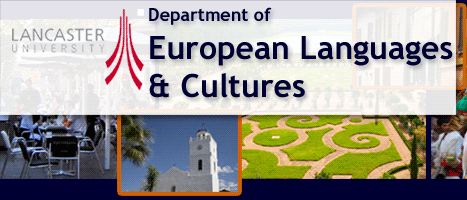
NEWS AND EVENTS ARCHIVE (2009-2014)
Archive
Warning: Undefined array key 1 in /export/depts/php/fass/news/shownews-include.php on line 11
Warning: Undefined array key 2 in /export/depts/php/fass/news/shownews-include.php on line 11
Memory Conference in Kent
Date: 22 August 2008
Cultural Memory is an area of study which has been extensively developed over the past fifteen years. Numerous conferences, books and series have been dedicated to it. This conference aims to raise the difficult question of whether - in opposition to conventional thinking - societies develop not so much through remembering the past as they do through forgetting it. We seek to turn thinking about modern identity upside down by exploring the relationship between the individual and the social or the private and the public in modern cultures. If one is to understand memory as a personal and collective reality then we must realize that 'the past is not simply there in memory, but it must be articulated to become memory' (A Huyssen, Twilight Memories: Marking Time in a Culture of Amnesia). If articulation of the past is forbidden by political or religious pressures or indeed by personal beliefs, then the past is erased from memory. It seeks to explore the traditional assumption that identity is about creating a story or narrative about one's place in history or what has happened in the past. Could it be that rather than living to remember, as museum cultures might assume, we live in order to forget? Is forgetting or re-imagining the past the basis of how cultures survive? Do we make progress in literature, arts and science not by remembering but by deliberately forgetting? Is creativity and self-formation of a life brought about by 'abandoning' the past - 'abandoning' what we already know in order to establish something new within a cultural life? We ask: Is forgetting a necessary part of functioning under the demands of contemporary modern life? Is the social order allowed to veil memories in order that society may survive by forgetting? To what extent is the construction of individual identity dependent on wider social and cultural life? Does contemporary life require individuals to forget in order to survive? Or is identity (individual and collective) concerned with inventing a narrative about the past? How do architects, film makers and video artists, fine artists, photographers,musicians, and writers contribute to the process of inventing, forgetting and reinventing elements of national and cultural identity?
Related Themes
*Empire and Memory; *Fiction of Memory/Memory's Fictions; *Myth and Memory; *Performance and Memory; *Place and Memory; *Religion and Collective Memory;
*Terror and Memory; *Testimony and Memory; *War and Memory.
http://www.kent.ac.uk/kiash/events/culturalmemory/papers.html
News website: http://www.kent.ac.uk/kiash/events/culturalmemory
Further information
Associated staff:
Associated departments and research centres: European Languages and Cultures
Keyword: